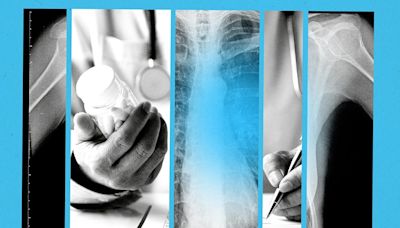Search results
People also ask
How much does genetic testing cost for breast cancer?
Who needs genetic testing for breast cancer?
Should all breast cancer patients undergo genetic testing?
4 days ago · Stanford Medicine researchers found that inherited gene sequences can predict what type of breast cancer a patient is likely to develop, along with how aggressive that cancer may be. Emily Moskal A Stanford Medicine study of thousands of breast cancers has found that the gene sequences we inherit at conception are powerful predictors of the ...
May 15, 2024 · If your family health history of breast cancer is average or moderate risk, you probably won't need genetic counseling and testing for hereditary breast and ovarian cancers. One exception is if you have a moderate risk family health history and Ashkenazi or Eastern European Jewish ancestry.
May 7, 2024 · If your test finds an important change, called a pathogenic variant or mutation, this impacts the ability for the gene to work as it should and cancer risks are increased— this is considered a positive result. “Pathogenic mutations cause increased and inherited risks for cancer,” Fowler says.
May 15, 2024 · Your healthcare provider might also recommend a genetic testing panel to check for genetic changes that make you more likely to develop a disease such as breast cancer or colorectal (colon) cancer, especially if the disease runs in your family but a specific genetic change that might be causing the disease in family members has not yet been ...
4 days ago · Although more than 75% of women with breast cancer have no family history, genetic testing is a safe and effective way to learn more about your risk. Your Mercy doctor can evaluate your family history and other factors to determine whether you’re a candidate for genetic counseling or testing.
3 days ago · Patients that carry the pathogenic variants of either of BRCA genes are offered early diagnosis options like MRI, including mammography screenings for breast cancer. 1 However, multigene tests can ...
May 17, 2024 · In addition, unexpected pathogenic variants in clinically significant high—or moderate—penetrance genes can be identified by using broader panels that include genes beyond what would be indicated by the patient's personal or family history (eg, Lynch-related genes in a breast cancer–only family).



